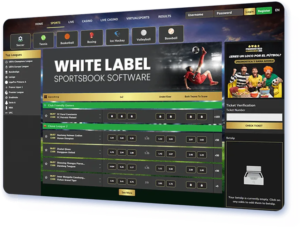Startup Apps That Made It Big for Small Scale Business: Success Stories and Strategic Insights
Small scale businesses have always been the backbone of the global economy, but they’ve traditionally faced significant challenges competing with larger enterprises when it comes to technology adoption and digital transformation. However, the rise of mobile applications has leveled the playing field in unprecedented ways, with numerous startup apps specifically designed to empower small businesses achieving remarkable success.
The most inspiring aspect of this trend is how targeted startup app development has created billion-dollar solutions by focusing exclusively on the unique needs of small-scale businesses. From inventory management to customer engagement, payment processing to marketing automation, these apps have proven that understanding your niche market deeply can lead to extraordinary success.
The Small Business App Revolution
The small business sector represents over 99% of all businesses globally, yet historically, most software solutions were designed for large enterprises with complex needs and substantial budgets. This gap created a massive opportunity for innovative entrepreneurs who recognized that small businesses needed powerful, affordable, and easy-to-use digital tools.
Today’s most successful small business startup apps share common characteristics: they solve specific pain points, offer intuitive user experiences, provide affordable pricing models, and integrate seamlessly with existing business processes. These apps have collectively generated billions in revenue while empowering millions of small businesses worldwide.
The key insight driving this success is that small businesses don’t want scaled-down enterprise software—they want solutions built specifically for their unique challenges, constraints, and workflows.
Success Story 1: Square – Revolutionizing Small Business Payments
Perhaps no startup app has had a more transformative impact on small businesses than Square. Founded in 2009 by Jack Dorsey and Jim McKelvey, Square began with a simple premise: small businesses needed an easy, affordable way to accept credit card payments without expensive merchant accounts or complex hardware.
The Problem Square Solved:
Before Square, small businesses faced significant barriers to accepting card payments. Traditional payment processors required lengthy approval processes, expensive equipment, and complex fee structures that made credit card acceptance impractical for many small vendors, food trucks, and service providers.
The Solution and Impact:
Square’s breakthrough was creating a small card reader that plugged into smartphones, combined with a free app that turned any mobile device into a point-of-sale system. This simple innovation allowed small businesses to start accepting payments within minutes of downloading the app.
The app’s success wasn’t just about hardware—it was about creating an ecosystem. Square gradually added inventory management, employee scheduling, customer relationship management, and business analytics, all designed specifically for small business needs.
Key Success Factors:
Square succeeded by focusing on user experience over features. The app was designed for business owners who weren’t tech-savvy, with intuitive interfaces and straightforward pricing. They also understood that small businesses needed comprehensive solutions, not just payment processing, leading to their platform approach.
Today, Square processes billions in payments annually and has expanded into lending, payroll, and e-commerce, all while maintaining its focus on small business needs.
Success Story 2: Shopify – Empowering Small E-commerce Businesses
Shopify’s journey from a small startup to a major e-commerce platform demonstrates how deeply understanding small business challenges can create massive opportunities. Founded in 2006, Shopify recognized that small businesses wanted to sell online but were intimidated by the technical complexity and costs of building e-commerce websites.
Identifying the Market Gap:
Traditional e-commerce solutions required significant technical expertise, substantial upfront investments, and ongoing maintenance that small businesses couldn’t afford. Meanwhile, simple solutions like eBay and Amazon didn’t give businesses control over their brand and customer relationships.
The Strategic Approach:
Shopify created a middle ground—powerful enough to run sophisticated online stores, yet simple enough for non-technical business owners to manage. Their app-based approach allowed small businesses to start simple and add functionality as they grew.
The platform’s success came from understanding that small businesses needed more than just website building tools. They needed payment processing, inventory management, shipping integration, marketing tools, and customer support—all in one cohesive system.
Growth and Evolution:
Shopify’s app store concept allowed third-party developers to create specialized tools for different industries and use cases, creating a rich ecosystem that could serve virtually any small business need. This approach scaled their solution without requiring them to build every feature in-house.
The company now powers over a million businesses worldwide, from small craft stores to rapidly growing direct-to-consumer brands, proving that focusing on small business needs can create enormous value.
Success Story 3: QuickBooks Mobile – Simplifying Small Business Accounting
Intuit’s QuickBooks has been serving small businesses for decades, but their mobile app transformation demonstrates how established companies can successfully pivot to serve the mobile-first small business market.
Understanding Mobile-First Small Businesses:
Modern small business owners don’t want to be tied to desktop computers for essential tasks like invoicing, expense tracking, and financial reporting. They needed accounting solutions that worked seamlessly across all devices and integrated with their mobile-centric workflows.
The Mobile-First Strategy:
QuickBooks Mobile wasn’t just a mobile version of their desktop software—it was redesigned from the ground up for mobile-first businesses. The app focused on the most common small business accounting tasks: creating and sending invoices, tracking expenses, monitoring cash flow, and generating basic reports.
The app’s success came from recognizing that small business owners often handle accounting tasks during downtime—between client meetings, while traveling, or after regular business hours. Mobile accessibility made accounting less burdensome and more integrated into daily business operations.
Integration and Ecosystem Building:
QuickBooks Mobile’s strength lies in its integration capabilities. The app connects with banks, payment processors, e-commerce platforms, and hundreds of other business tools, creating a centralized hub for small business financial management.
This ecosystem approach has made QuickBooks Mobile indispensable for millions of small businesses, demonstrating how understanding user workflows can create strong competitive moats.
Success Story 4: Mailchimp – Democratizing Email Marketing
Mailchimp’s evolution from a simple email marketing tool to a comprehensive marketing platform illustrates how startup apps can grow by continuously expanding their value proposition for small businesses.
Identifying the Communication Challenge:
Small businesses struggled with professional marketing communications. Traditional email marketing solutions were either too expensive, too complex, or required technical expertise that small business owners didn’t possess.
The User-Centric Approach:
Mailchimp focused on making email marketing accessible and affordable for small businesses. Their freemium model allowed businesses to start marketing without upfront costs, while their drag-and-drop email builder made professional-looking campaigns achievable for non-designers.
The app’s success came from understanding that small businesses needed more than just email sending capabilities—they needed templates, automation, analytics, and integration with their existing tools.
Platform Evolution:
As small businesses’ digital marketing needs evolved, Mailchimp expanded into social media marketing, landing pages, customer relationship management, and e-commerce integration. This evolution was driven by user feedback and usage patterns rather than competitive pressure.
Today, Mailchimp serves millions of small businesses worldwide, proving that solving one problem well can open doors to solving many related problems for the same audience.
Key Success Patterns in Small Business Startup Apps
Analyzing these success stories reveals common patterns that startup app development companies should consider when targeting small businesses:
Deep Problem Understanding:
Successful small business apps start by identifying specific, painful problems that small businesses face daily. These aren’t theoretical problems—they’re issues that keep small business owners awake at night or consume disproportionate amounts of their time.
Simplicity Over Features:
Small business owners are typically busy generalists rather than specialists in any particular software category. They need solutions that work immediately without extensive training or setup.
Affordable and Scalable Pricing:
Small businesses are price-sensitive but willing to pay for solutions that clearly demonstrate value. Successful apps often use freemium models or low-cost entry points that scale with business growth.
Integration-First Design:
Small businesses use multiple tools and systems. Apps that integrate seamlessly with existing workflows have significant advantages over those that require businesses to change their processes.
Mobile-Optimized Experiences:
Small business owners are increasingly mobile-first in their operations. Apps designed for mobile use from the ground up typically outperform those that treat mobile as an afterthought.
The Role of Startup App Development Companies
Many of these successful small business apps were created by entrepreneurs who partnered with experienced startup app development companies rather than building everything in-house. This approach offers several advantages for targeting the small business market:
Industry Expertise:
A startup app development company with small business experience understands the unique constraints and requirements of this market segment. They can help avoid common pitfalls and identify opportunities that might not be obvious to first-time entrepreneurs.
Rapid Prototyping and Iteration:
Small business apps need to prove value quickly. Experienced development teams can build and iterate prototypes rapidly, allowing for faster market validation and user feedback incorporation.
Scalable Architecture:
Small business apps that succeed often grow rapidly. Development companies experienced in startup scaling can build architectures that handle growth without complete rebuilds.
Cross-Platform Expertise:
Small businesses use diverse technology ecosystems. Development companies can ensure apps work seamlessly across different devices, operating systems, and integration points.
Emerging Opportunities in Small Business Apps
The small business app market continues to evolve, with new opportunities emerging as technology advances and business needs change:
AI-Powered Solutions:
Artificial intelligence can help small businesses compete with larger enterprises by automating complex tasks and providing insights previously available only to companies with dedicated analysts.
Industry-Specific Solutions:
While horizontal solutions like Square and QuickBooks serve broad markets, there’s growing opportunity for vertical solutions that address the specific needs of particular industries like restaurants, salons, or professional services.
Remote Work Tools:
The shift toward remote and hybrid work models has created new needs for small businesses, from team collaboration to customer service solutions designed for distributed teams.
Sustainability and Social Impact:
Small businesses increasingly want tools that help them operate more sustainably and demonstrate social responsibility to their customers.
Building Your Small Business App Success
If you’re considering developing a startup app for small businesses, start by spending significant time with your target users. Small business owners are often willing to share their challenges and frustrations if approached respectfully and professionally.
Focus on solving one problem exceptionally well before expanding your scope. The most successful small business apps typically start narrow and deep rather than broad and shallow.
Consider partnering with an experienced startup app development company that understands the small business market. Their expertise can help you avoid common mistakes and accelerate your path to market.
Conclusion: The Ongoing Small Business App Opportunity
The success stories of Square, Shopify, QuickBooks, and Mailchimp demonstrate that focusing on small business needs can create enormous value for both entrepreneurs and the businesses they serve. These apps succeeded not by trying to be everything to everyone, but by deeply understanding specific small business challenges and creating elegant, affordable solutions.
The small business app market remains full of opportunities for entrepreneurs willing to invest time in understanding their users’ real needs. As technology continues to evolve and small businesses face new challenges, there will always be room for innovative solutions that genuinely improve how small businesses operate and compete.
Whether you’re a solo entrepreneur or working with a startup app development company, the key to success in the small business market is the same: solve real problems for real people in ways that are simple, affordable, and genuinely valuable. The businesses that do this well don’t just create successful apps—they create tools that empower millions of small businesses to thrive in an increasingly digital world.













